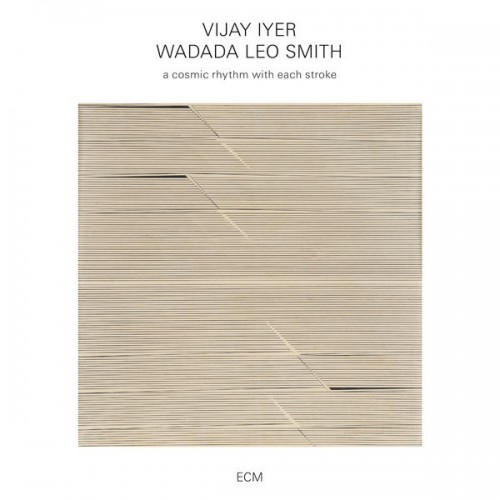"ECM style jazz" may have started out as an apt way of describing the clear and crisp aesthetic of the seminal German label, and notably the production style of founder/producer Manfred Eicher, but somewhere along the line it became a bit of a insult, associating any albums described as such with cold, overly-intellectual trappings and a lack of emotional resonance. As unfair as that might seem when one considers such landmark and modern jazz albums released on ECM, from Marion Brown’s Afternoon Of A Georgia Faun to recent experiments in folk/jazz crossovers by Incredible String Band’s Robin Williamson (via Dave Holland’s Conference of the Birds, the entire ECM oeuvre of Keith Jarrett and the latest opuses by Poland’s Tomasz Stanko), mud sticks, and ECM has become a byword for the kind of pensive, beard-stroking music played in stuffy concert halls to well-to-do audiences, far removed from the radical fire of, say ESP-Disk or Impulse in the Trane years. However, if any artist currently navigating the tempestuous waters of modern jazz could put the lie to this unfortunate stereotype about ECM, it’s trumpeter/composer supreme Wadada Leo Smith, and, in tangent with über-talented young buck Vijay Iyer, he unintentionally does just that on A Cosmic Rhythm With Each Stroke.
Wadada Leo Smith’s recent output, notably but not merely 2012’s Pulitzer Prize-nominated Ten Freedom Summers is so relevant, so useful, in 2016 that it could be easy to forget he is a hardened veteran at 74 years of age, a member of the AACM since 1967 with a body of extraordinary work five decades in the making. And that is precisely because, with works like the aforementioned Ten Freedom Summers, not to mention his effervescent live performances with musicians of all ages, but mostly younger, Smith retains the same spirit that animated his early work such as Divine Love (also on ECM, back in 1979), but has honed it to perfection, reshaping his natural skill as a trumpeter in service to compositions that fizz with political and emotional energy. On Ten Freedom Summers, he achieved this with a large ensemble, but he is just as comfortable in a stripped-down and intimate environment, as displayed in this duo format.
The bulk of A Cosmic Rhythm With Each Stroke is taken up by the title suite, divided into seven very diverse segments. After a gentle, minimalist dialogue between Iyer’s piano and Smith’s trumpet opens the album in the form of ‘Passage’, ‘A Cosmic Rhythm with Each Stroke: All Becomes Alive’ unveils the album’s core universe with considerably more intensity, Smith wasting no time in blasting out a series of fiery solos backed by shimmering electronics from Iyer. It’s a brooding, angry piece, more akin to the atmospheres of Smith’s more political work than the ostensibly more cerebral parameters set for this recording, which was intended as a tribute to Indian abstract artist Nasreen Mohamedi. And yet, with its abstract sonic background of pulsating micro-beats and sampled strings setting a canvas-like framework for the two artists, there are parallels to be drawn between this music and Mohamedi’s geometric, aesthetically clean drawings. Iyer’s piano, when he turns to it, slaloms around Smiths trumpet lines, with the latter darting from forthright free blowing to pensive melodic interludes. Both artists have performed together in the past, and it shows: although Smith is clearly the dominant figure, with Iyer showing understandable deference, their interplay is deeply empathetic, rooted in deep listening to one another.
Given the aforementioned reputation of "ECM style jazz", basing an entire suite on the works of a minimalist artist whose work has been exhibited in MoMA might sound like the perfect ammunition for the stable’s detractors, and in other hands might have resulted in something stultifyingly austere and academic. However, both Vijay Iyer and Wadada Leo Smith display a clear emotional resonance with Mohamedi’s work, the deceptive simplicity of which masked a deeply spiritual nature. Smith himself has made frequent reference to notions beyond the spheres (not least in the album’s title!), whilst it might be safe to suggest that Iyer’s Indian heritage might give him greater insight into the spiritual and intellectual aims behind Mohamedi’s drawings. ‘A Cosmic Rhythm With Each Stroke: The Empty Mind Receives’ shares the glacial pace of its predecessor, Smith’s trumpet imbued with mournfulness and Iyer’s quiet notes deployed with grace and poise, sudden accelerations triggering fulsome solos from his compadre. ‘Labyrinths’ seems to echo Mohamedi’s work more literally, as staccato clusters of notes from both players swirl and dance around one another; whilst ‘A Divine Courage’ perhaps sounds like what would have resulted from a Miles Davis/Bill Evans duo album (imagine that!). Large passages of silence grace the entire album, allowing room to contemplate the emotions and sensations that are being experienced. The suite ends on a funky note with ‘Notes On Water’, with Vijay Iyer taking to the Rhodes electric piano whilst the joy Smith experiences with every note shines out as he plays.
A Cosmic Rhythm With Each Stroke, as a title, may have been intended to sum up both artists’ feelings when contemplating Nasreen Mohamedi’s art, but it comes over just as much as a manifesto for this album. Both Iyer and Smith perform exquisitely throughout (and yes, Manfred Eicher’s clear production captures them perfectly), but also apply their notes, chords, solo flourishes and textures with intellectual aplomb and emotional potency. This is music from the heart performed by the brain, which is, as I consider my ECM collection, perhaps the best way to summarise the label’s aesthetic. Few artists encapsulate the sheer wealth of possibilities inherent in jazz better than Wadada Leo Smith, and in ECM he’s got a profoundly sympathetic label, in Vijay Iyer he has a wonderfully sympathetic foil, and in Nasreen Mohamedi he’s stumbled across an apposite frame of influence.


